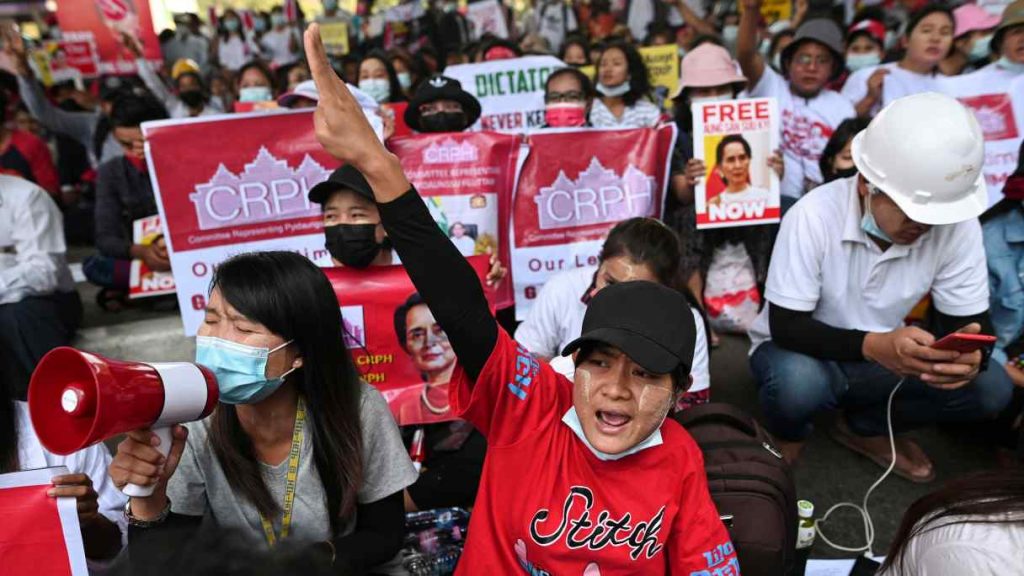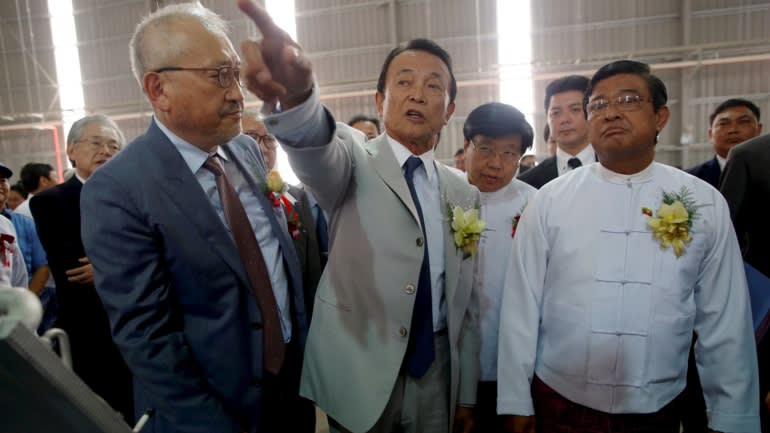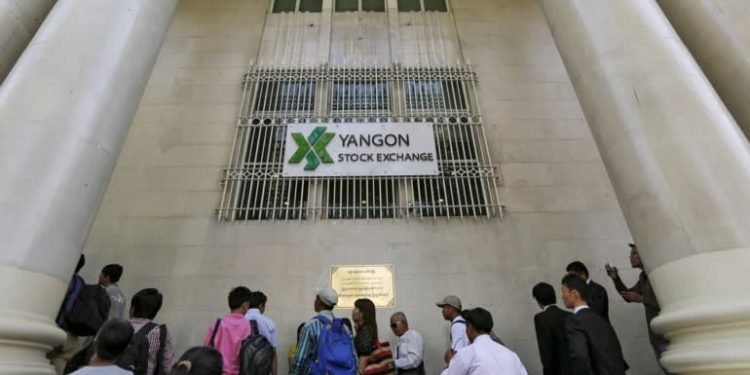Weak business activity bodes ill for nascent market and investors like Singapore. The coup that plunged Myanmar into turmoil on Feb. 1 has had a swift and significant impact on the economy, statistics indicate — setting back a country that was just beginning to show its potential.

Myanmar remains one of the world’s least developed economies, as classified by the United Nations. But its gradual transition to democracy raised hopes that it would soon rise like many of its Southeast Asian peers. From Singapore, its largest source of direct investment, to Japan, which backed a major industrial zone, international players had been betting on the country’s future.
Now that future looks foggy at best. Many workers are either joining protests against the junta or have fled to their hometowns as the authorities crack down, interrupting regular business operations. The chaos also appears to have compromised efforts to contain COVID-19, raising additional concerns about the country’s recovery from the pandemic.
Here are five early signals of the military takeover’s economic impact, and possible international spillover effects.
Factory activity index hits record low
Myanmar’s manufacturing purchasing managers’ index (PMI), compiled by IHS Markit, plunged to 27.7 in February, down from 47.8 in January. The gauge of factory activity dropped far below the neutral 50 mark and hit the lowest level since the survey began in 2016.
The PMI survey asks companies about changes in output, new orders and other business conditions, compared with the previous month. Any number below 50 indicates a contraction, while a reading above 50 means the opposite.
Around 70% of respondents reported lower output in February after factory operations ground to a halt, according to the survey. Some noted that their workers had rushed to their hometowns.
IHS Markit economist Shreeya Patel said that while 2020 brought a series of contractions due to COVID-19, recent months had shown signs of a recovery, “with the headline [PMI] figure inching toward stability.”
“However, the latest political developments represent a fresh setback” for Myanmar’s production sector.
New business registrations plunge by 86%
Only 188 new businesses were registered in Myanmar in February, versus 1,373 in January and 1,298 in February 2020, according to the country’s Directorate of Investment and Company Administration. The 86% drop from the previous month clearly shows a reduced appetite for launching new endeavors amid the political uncertainty.
The deterioration in business activity, as seen in this data and the PMI, will have “limited spillover effects on other regional economies,” Linda Liu, a Singapore-based economist at Maybank Kim Eng, told Nikkei Asia.
Myanmar’s economy is still small — around 2% of the overall gross domestic product of the Association of Southeast Asian Nations. But Liu said the spillover is more likely to be company-specific, hitting enterprises with direct investments or greater direct exposure and business operations in Myanmar.
One of Myanmar’s core industries is garment manufacturing, supplying well-known global apparel brands. Sweden’s H&M said on March 8 that it had paused placing new orders with its suppliers in the country, citing “practical difficulties and an unpredictable situation,” according to a Reuters report.

Yangon Stock Exchange trading volume drops 60%
The country’s fledgling stock market — only six stocks are listed — also faces swirling doubts after trading was abruptly halted on Feb. 1 and 2 in the wake of the coup. Over the 23 trading days from Feb. 3 to March 9, the total trading volume on the Yangon Stock Exchange was 85,436 shares, down 62% from the 223,475 that changed hands the previous year.
Opened in 2015, Myanmar’s stock market is still young and was expected to contribute to the development of the country’s capital market. Just last year, the Yangon exchange allowed foreign investors to participate in trading.
The Yangon Stock Exchange, pictured in 2016, was expected to contribute to the development of the country’s capital market. © Reuters
The benchmark MYANPIX stock index plunged shortly after the coup. Currently it is hovering around 425, compared to 443.72 at the end of January.
The backlash against Myanmar companies listed overseas has been more severe. Singapore-listed Yoma Strategic Holdings, a core unit of conglomerate Yoma Group, saw its share price nearly cut in half from 0.28 Singapore dollars at the end of January to SG$0.16 as of last Friday.
COVID testing capacity collapses by 90%
Myanmar has reported a total 142,000 coronavirus infections, with 3,200 deaths. Containing the virus and promoting vaccinations will be crucial for a true economic recovery, but the coup appears to have compromised the authorities’ capacity to address the health crisis.
Data from the Ministry of Health and Sports shows the average number of daily tests was about 1,600 in the first seven days of March, less than a tenth of the average of about 17,000 in the seven days before the coup. Daily new cases have been stuck around 20 since mid-February, versus more than 300 before the military took over — suggesting the country may be losing sight of the spread.
Stephane Dujarric, spokesman for the United Nations secretary-general, raised concerns during a March 8 briefing, saying Myanmar’s COVID-19 testing capacity and vaccination planning have been “severely impacted.”
[NikkeiAsia]















